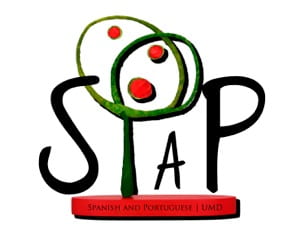
Our colleague and friend, Mexican writer José Emilio Pacheco was awarded the Cervantes Prize, the highest literary honor in the Spanish-speaking world, on November 30, 2009. According to the jury, he is “an exceptional poet of daily life”, with the “ability to create his own world” and with “an ironic distance from reality” in his texts. Kudos/Congratulations José Emilio
The Miguel de Cervantes Prize, also known as Cervantes Prize, is a literary prize in Spanish awarded annually by the Ministry of Culture of Spain from the candidates proposed by the Language Academies of the Spanish-speaking countries. Established in 1976, this prize is the most important recognition in Spanish language to celebrate the overall body of work of an outstanding writer whose oeuvre is unique for the Spanish cultural heritage. Therefore, this prize is regarded as the Spanish language Nobel Prize in Literature.
The winner receives a monetary award of 125,000 euros (or $188,430 US dollars). The award is named after Miguel de Cervantes, author of Don Quixote, the best novel written in Spanish literature.
Members of the jury
The president of the jury is José Antonio Pascual, member of the Spanish Royal Academy. The other members of the jury are Jaime Labastida, representative from the Mexican Language Academy; Luis García Montero, from the Spanish Universities’ Presidents Conference; María Agueda Méndez, from the Association of Latin American Universities; Soleda Puértoles, from the Cervantes Institute; Almudena Grande, from the Ministry of Culture; Pedro García Cuartango, from the Spanish Associated Press Federation; Ana Villareal, from the Latin American Associated Press Federation; David Gíes, from the International Hispanic Association; and Juan Gelman, winner of the prize in 2007. Rogelio Blanco, general Director of the Book, Archives and Libraries Office, and Mónica Fernández, general assistant of the Book Promotion, Reading and the Spanish Language, are the board secretaries.
List of Cervantes Prize Winners
1976 Jorge Guillén
1977 Alejo Carpentier
1978 Dámaso Alonso
1979 Jorge Luis Borges
Gerardo Diego
1980 Juan Carlos Onetti
1981 Octavio Paz
1982 Luis Rosales
1983 Rafael Alberti
1984 Ernesto Sábato
1985 Gonzalo Torrente Ballester
1986 Antonio Buero Vallejo
1987 Carlos Fuentes
1988 Maria Zambrano
1989 Augusto Roa Bastos
1990 Adolfo Bioy Casares
1991 Francisco Ayala
1992 Dulce María Loynaz
1993 Miguel Delibes
1994 Mario Vargas Llosa
1995 Camilo José Cela
1996 José García Nieto
1997 Guillermo Cabrera Infante
1998 José Hierro
1999 Jorge Edwards
2000 Francisco Umbral
2001 Álvaro Mutis
2002 José Jiménez Lozano
2003 Gonzalo Rojas
2004 Rafael Sánchez Ferlosio
2005 Sergio Pitol
2006 Antonio Gamoneda
2007 Juan Gelman
2008 Juan Marsé
Premio Cervantes Prize To Emeritus Professor Jose Emilio Pacheco.









